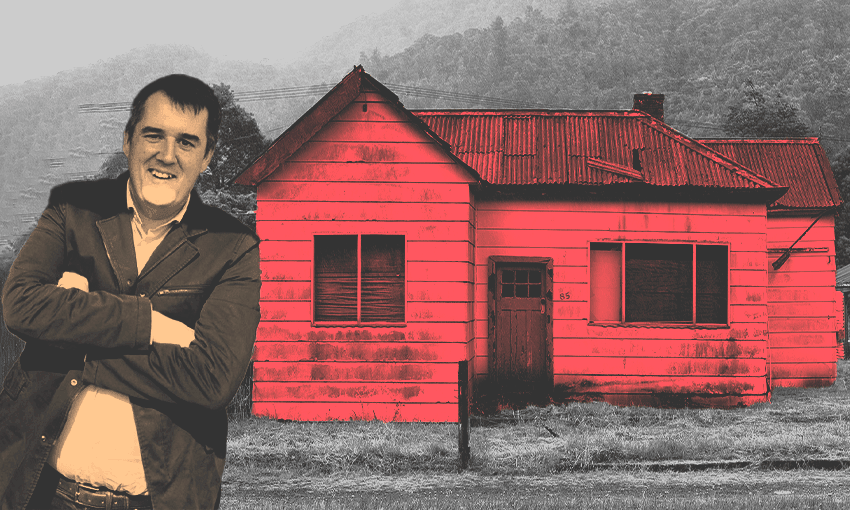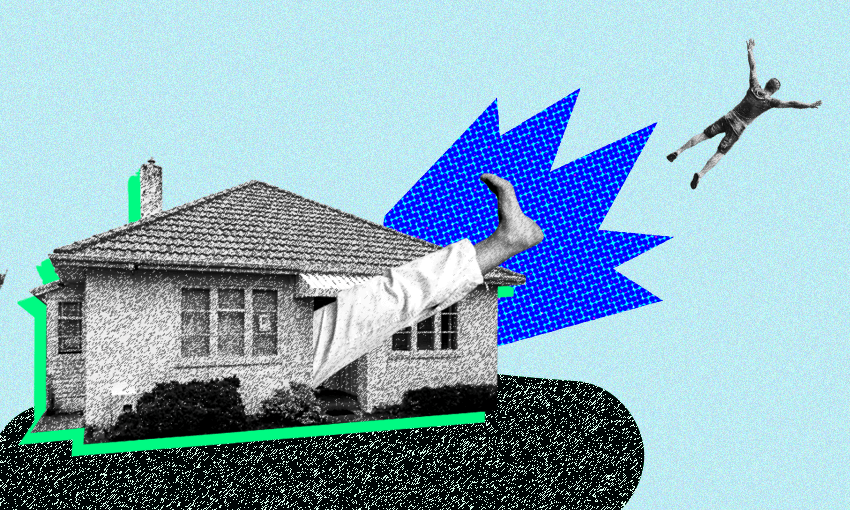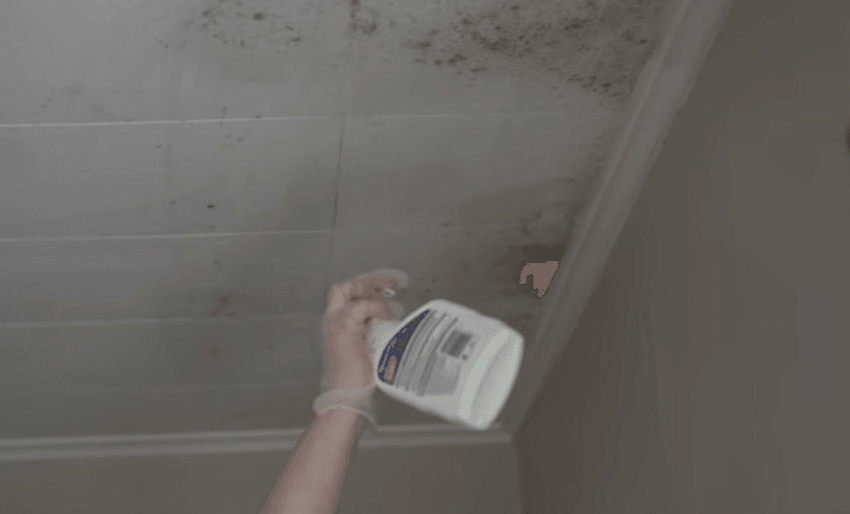Amid a rental shortage, the increased threat of eviction will make tenants think twice before complaining to their landlord, write a group of housing researchers.
Aotearoa’s housing problems aren’t exactly news. We know there’s not enough of it, and we know it’s generally pretty poor quality. Despite that poor quality, our housing still manages to be among the most expensive in the OECD.
On top of paying more for less, New Zealanders move more than almost anyone else in the OECD, and often not by choice. Renters, in particular, have little security and high mobility. In a 2018 study, a quarter of private renters said the reason they’d last moved was because their landlord had given them notice—in plain English, because they were evicted.
As well as being insecure, the private rental sector also has our worst housing quality (compared to owner-occupiers, Kāinga Ora, and community housing providers). That leaves private renters with a large burden of housing related ill-health. With their double load of our poor housing quality and insecure tenure, private renters – at least a third of us – should be at the top of politicians’ minds (and policies).
The National Party has consistently said they want everybody in Aotearoa to live in warm, dry and healthy homes. John Key was a strong supporter of the Healthy Housing Initiative, and during the most recent election campaign Chris Bishop criticised the Labour government for taking too long to implement healthy homes standards in all Kāinga Ora properties. But now that he’s housing minister, Bishop is looking to put this ‘pro-renter’ talk into practice by overhauling the Residential Tenancies Act… to reduce renters’ rights.
The proposed changes include bringing back 90-day no-cause notices, shortening some periodic tenancy notice periods to 42 days, and allowing landlords to end fixed-term tenancies at the end of the term without giving a reason.
Reducing tenure security in this way will harm health. Worldwide, including here, research consistently shows that high levels of insecurity and mobility are bad for health and wellbeing. Moving house often means moving away from family, friends, support networks, and important services like schools, workplaces, and healthcare. Moving hits children particularly hard – kids who move around a lot are at higher risk of socio-emotional and behavioural difficulties.
When we look at wellbeing outcomes for private renters who have been based in the same house for long periods, they are up there with homeowners and public housing tenants. This suggests that measures to make tenancies more secure positively impact health and wellbeing.
As well as the direct health impacts of tenure insecurity, reintroducing 90-day notice periods will harm health is another, more complex way: tenancy insecurity undermines housing quality regulations.
The healthy homes standards set minimum standards for rentals, and they’re one of our main tools to improve the quality of our rental housing. Their main flaw is how they’re enforced, which relies on tenants reporting breaches.
Let’s say you’ve just moved into a new rental. It’s meant to have a fan in the bathroom and a heat source in the lounge. It doesn’t, so you reach out to your landlord by email to let them know. Your landlord has 90 days to fix the problem but they don’t get back to you. If you really want anything done about it, it’s now up you to go the Tenancy Tribunal to report the breach.
Recently, during Parliamentary question time, Wellington Central MP Tamatha Paul asked housing minister Chris Bishop what he would say to the renter who remembers “their ‘mum crying because she received a 90-day notice just days after we filed a healthy homes report because my room was completely covered in mould, there were slugs entering under doors every night, and none of the walls were insulated’”.
The minister responded that “the government supports the healthy homes standards, and I would say to that renter exactly that”. He added that “it is illegal to do that”, referring to the retaliatory eviction.
His response raises two important points: yes, it’s technically illegal to evict someone because they’ve asked for their home to meet minimum standards but, importantly, the threat of 90-day no-cause notice still puts tenants on the back foot.
While Paul is sharing an example of just one whānau, research backs this up. The less secure a tenancy is, the more likely the tenant is to avoid raising housing quality issues. Due to the inverse housing law, tenants who are in the least secure positions to complain about housing quality are also those most likely to live in properties that require urgent maintenance or don’t meet minimum standards.
So, let’s hop back to the scenario we posed (you’re a renter with no fan, a mouldy bathroom, and no heat pump). Let’s add in to this scenario that you know your landlord can give you 90-days’ notice for no reason, and you’ve heard about the recent study showing 27% of renters in New Zealand took more than 120 days to find their home.
Are you really going to report those issues?
Even though retaliatory eviction is illegal, the spectre of no-cause evictions makes a farce of the healthy homes standards. As housing law researcher David Cowan argued, housing regulations are “rendered practically useless by the temporary nature… of private renting”.
The negative health outcomes associated with insecure tenancy and poor housing quality aren’t evenly distributed. For people with low incomes, non-Pākehā backgrounds, large families, or pets, it’s harder to find decent housing. The proposed re-introduction of 90-day no-cause notice further increases opportunities for landlords to discriminate, particularly against groups – such as members of the queer community – who experience discrimination based on characteristics which may not have been visible when they applied for the tenancy.
Back in 2020, the Labour government amended the Residential Tenancies Act (RTA) to increase security of tenure while continuing to protect landlords’ interests. In its current form, the RTA allows landlords to evict tenants if they want to sell or to renovate, or to have family move into the unit. If a tenant repeatedly breaches their responsibilities – whether by behaving ‘anti-socially’ or not paying rent – landlords can apply to the Tenancy Tribunal to terminate the tenancy. In such cases the tribunal almost always finds in favour of the landlord. Re-introducing 90-day no-cause notice, therefore, is unnecessary in terms of protecting landlords’ interests, and is actively harmful to tenure security and health outcomes. With landlords already able to evict tenants for ‘reasonable’ causes, the only benefit landlords get out of undoing the 2020 RTA reforms is the power to evict tenants for unreasonable causes.
The government claims 90 day notices are needed so landlords will “give tenants a chance” rather than leave homes empty. Our team has done a lot of housing research, and we’ve seen no evidence, anywhere in the world, that allowing no-cause notice increases rental supply.
We’re glad to see the National government continue to stress the importance of healthy housing. What we want to see now are policy decisions that consistently support this. In a world where it’s easier for a landlord to evict someone than bring their housing up to standard, renters are always going to be on the back foot, and the government’s aspiration to see all renters in healthy housing will be further out of reach.























Discussion about this post